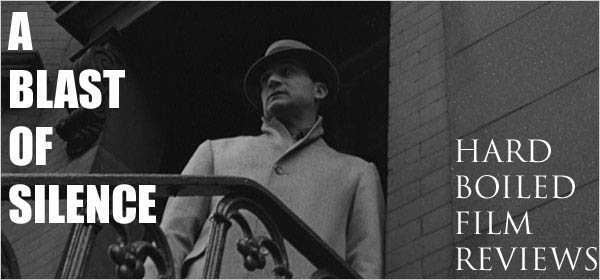Finally, what became of Tarantino’s self-described “bunch-of-guys-on-a-mission” film turned into a tale of a brooding squad of Jewish Americans set on scalping Germans interlaced over the course of five chapters with a French side plot of a former Jewish hideaway and her plan to pay the Nazi regime back for past inflicted pains. Inglourious Basterds is seemingly all about the brutality, revenge and racism of the battleground in German occupied France, and looks at the barbarism from all points of view.
There’s always a lot to cover when talking about a Tarantino written and directed film. As a filmmaker he puts so much into his films, especially on personal levels. His entire filmography is almost a showcase for his affection of all different types of the world’s cinema. From noir-bled stories to an expansion on the blaxploitation genre, Tarantino is one of the modern artists that have been able to translate the blood, guts and viscera of past genres to today’s filmmaking, a key ability that helps translates this arduous script come to life.
Because of this, Inglourious Basterds breathes a few fresh breaths right from the beginning with the old styled title credits and the name of the first chapter, “Once Upon a Time in Nazi-Occupied France”, something you might find as the name of a Sergio Leone directed and Terence Hill acted spaghetti western. In fact the name of the film is inspired by the English title of Enzo G. Castellari’s classic war exploitation film The Inglorious Bastards, which also deals with a group of roughneck American soldiers during World War II.
This whole theme carries into the entire film, from the type of music to the violence to the characters named after famous actors and filmmakers. It’s strange to say that something that reminds me of films from the 1960’s and 1970’s is original and something I’m glad to see, but after mucking through far too many spiritless titles every week, this nod to another decade is something I welcome. Inglourious Basterds certainly seems to contain a whole lot of a respect for a whole lot of people.
But of course the most respect here should be given to Tarantino for finally making his back-pocket script actually a possibility. Like any film from the director, there’s plenty of dialogue. Of course, it’s all excellent dialogue, the kind only Tarantino and a select few others can really brings forth into their films. It’s the kind of wordplay, both completely serious at times and absurdly funny at others, that explores characters with good insight and holds an audience in its seats by building tension.
The real motivating engine of the film is the way everything unravels. Inglourious Basterds is seriously good storytelling at its finest. Even at 153 minutes the film has a conjoined feel where all the pieces fit together. The films multiple yet interlacing storylines are told through the course of five different chapters, all a bit different from one another, yet each acting to build the next one.
Not really a true ensemble cast, but still deserving of equally divided credit, the actors in Inglourious Basterds all pulled together and contributed to some truly remarkable performances. The film is stolen by Christoph Waltz as SS officer Hans Landa. The Austrian actor should be looking at some notice from the Academy come Oscar season with his truly evil, commanding and thoroughly entertaining portrayal of "The Jew Hunter".
Brad Pitt has really done a good job as of late turning in nice character performances. His silly role in the Coen Brother’s Burn After Reading led to a much more serious turn in The Curious Case of Benjamin Button and finally into this serious yet darkly funny character Lt. Aldo Raine, a man subtitled “Aldo the Apache” for his love of scalping Nazis. With his quick-speak and impeccable Hillbilly-fashioned southern drawl, Pitt seems to be building onto a nice acting career sometimes overshadowed by his crowd-drawing name and good looks.
The rest of the performances, some a bit smaller in scale, impress just as well. Never was I huge Eli Roth fan, and on paper I could never see him pulling off a character nicknamed “The Jew Bear”, but he did it. German actor Til Schweiger might have given the most badass performance as quiet psychopath Hugo Stiglitz and other main protagonist Shosanna is wonderfully played by the gleaming Mélanie Laurent. Also of note is Mike Myers’ revitalizing performance, somewhat similar to the way Tom Cruise had a surprising and successful appearance in 2008’s Tropic Thunder.
This bastard child of multiple genres is a triumph for Quentin Tarantino. Inglourious Basterds is spaghetti western built with World War II mythos and an unrestrained, anything goes battlefield being trudged through by memorable characters full of arching dialogue and subtly dark humor. I’m not ready to say Inglourious Basterds is Tarantino’s best film, but it certainly is one of his most remarkable pieces of art, a true ode to many things past. Perhaps Tarantino was speaking directly through Pitt’s character when Aldo Raine speaks the line “I think this might just be my masterpiece.”



No comments:
Post a Comment